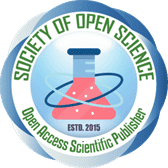Immunotoxicological studies of Staphylococcin of CA-MRSA
Keywords:
Staphylococcin, Immunogenicity, Hematology, BiochemistryAbstract
Methicillin-resistant Staphylococcus aureus isolated from the nares of school going children (CA-MRSA) has been found to produce bacteriocin like inhibitory substance tentatively termed staphylococcin. It has a broad activity spectrum against many Gram positive bacteria including Staphylococcus aureus which suggests that the protein molecule can be used as an alternative for antibiotics. In this regard, the bacteriocin was studied for its immunological and toxicological properties in experimental mice. The antigenicity/immunogenicity of bacteriocin was assayed by ouchterlony technique. Accordingly, staphylococcin is antigenic ally poor, in the mice immune system and the antibody titre was not found to be significant in the ouchterlony technique. The acute and chronic toxic studies do not show any toxic effects in laboratory mice when injected with different doses of bacteriocin (20, 40, 60 and 80μg/ml). Hematological studies with staphylococcin showed a marginal increase in lymphocyte count in the test animal groups. Further, different doses of staphylococcin showed no significant biochemical changes in the normal profile of mice blood biochemistry.
Downloads
References
CLSI (2006). Performance standards for antimicrobial susceptibility testing. 16th informational supplement, M100-S16. Clinical and Laboratory Standards Institute, Wayne, PA.
Creech, C.B., Kernodle, D.S., Alsentzer, A., Wilson, C. & Edwards, K.M. (2005). Increasing rates of nasal carriage of methicillin-resistant Staphylococcus aureus in healthy children. Pediatr. Infect. Dis. J., 24(7): 617–621. https://doi.org/10.1097/01.inf.0000168746.62226.a4.
Saeed, S., Ahmad, S. & Rasool, S.A. (2004). Antimicrobial spectrum, production and mode of action of staphylococcin 188 produced by Staphylococcus aureus 188. Pak. J. Pharm. Sci., 17(1): 1–8.
Schellekens, H. (2002). Immunogenicity of therapeutic proteins: clinical implications and future prospects. Clin. Ther., 24(11): 1720–1740. https://doi.org/10.1016/s0149-2918(02)80075-3.
Bussiere, J.L. (2003). Animal models as indicators of immunogenicity of therapeutic proteins in humans. Dev. Biol., 112: 135–139.
Downloads
Published
How to Cite
Issue
Section
License
Copyright (c) 2010 The author(s) retains the copyright of this article.

This work is licensed under a Creative Commons Attribution 4.0 International License.
This is an open access article distributed under the Creative Commons Attribution License which permits unrestricted use, distribution, and reproduction in any medium, provided the original work is properly cited.





